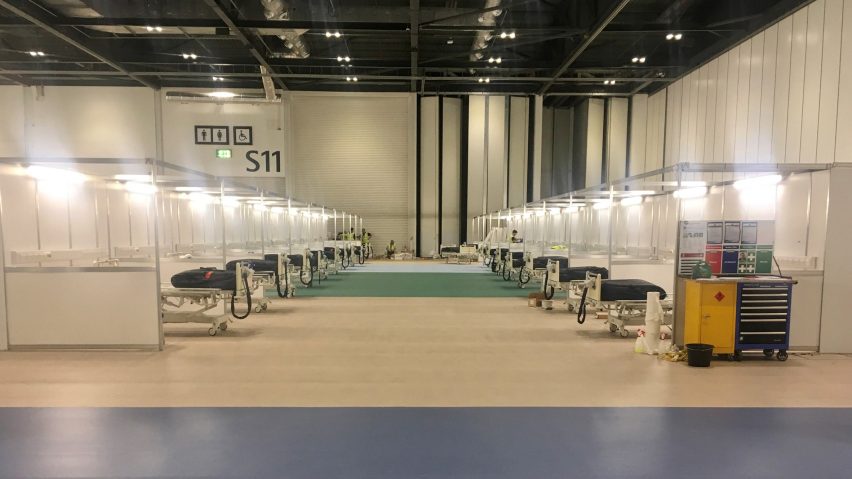
"The current crisis has exposed the structural shortcomings of our healthcare systems"
The coronavirus has exposed fundamental problems with our healthcare systems that we should not forget once the pandemic passes, warns Reinier de Graaf in a letter to the present from the future.
How will we look back on today once the current crisis has panned out? How "new" will the new normal be? While the current crisis offers compelling reasons for change, history also cautions against premature conclusions.
This is my report on the present from the future:
In Europe we were living longer than any previous generation in human history. Average life expectancy had doubled in the past century. Thanks to improvements in medicine, sanitation, and nutrition, most of us would live to see 73. Diseases were done away with, or else made manageable with new treatments. Illness had become less something to die from, and more something to live with.
While we were living longer, we were by no means healthier. Advanced age was a precipice. The older we got, the more susceptible we became to new threats – whether pathogenic or political. Half a century earlier, there had been seven working-age persons per pensioner. This number had halved in the time since. We were becoming increasingly dependent on the young.
Healthcare had been made part of the service sector and became subject to the laws of the market economy
A new approach was imperative, and with it came a new regime. Healthcare had been made part of the service sector and became subject to the laws of the market economy. Hospitals, whether state-run or private, were expected to enterprise. If they couldn't compete, they didn't last.
The hospital director became manager. The doctors became staff. The patient became client. And what could be better for business than a steady flow of clientele? The old and chronically ill went from burden to business opportunity. Their recurring visits became a trend to capitalise on. Ambulatory care was key to the hospital of the future.
The shorter the stay, the better. Less expensive and less stressful, for all involved. In, out, and off home to recuperate. Out with beds, and in with technology. Advanced treatment, faster recovery time and remote monitoring became the new dogma. People were best kept out of the hospital.
Being well was a personal responsibility. And countless people bought into it, surrendering to diets, punishing exercise regimes, eastern mysticism or all at the same time. Life was about self-improvement. Most of us didn't need hospitals, and we certainly didn't want them. At home our beds were comfortable, the food edible.
It had been 100 years since the Spanish Flu, long enough to erase its impact from collective memory and long enough to lose those who learned from the experience
And then one day it happened. At first, few were willing to acknowledge it. Those where it started wouldn't admit it to the damage. Those far away wouldn't believe it could reach them. It did, and without exception. Though indiscriminate in choosing its hosts, it soon became clear that the elderly and those with underlying health conditions were the ones to fall victim – precisely the people medical progress had managed to keep alive the century before.
It had been 100 years since the Spanish Flu, long enough to erase its impact from collective memory and long enough to lose those who learned from the experience. A century of uninterrupted medical progress and growing life expectation had left us unprepared for things to come. But what is a century on the scale of human history? Epidemics recur. Infections stick around. And given globalisation, another pandemic was always on the cards.
We had nowhere to put them all, and soon realised how useful the old hospitals would have been had we not demolished them. We'd spent the last half century making hospitals less hospital-like, until there came a day when we didn't need to.
It was clear a fundamental rethinking of healthcare provision would be vital if we were to survive the next great challenge
Hotels became hospitals. Schools became hospitals. Sports stadia became hospitals. Exhibition and congress centres became hospitals. The crisis had exposed the structural shortcomings of our healthcare systems. Beyond these temporary expedients, it was clear a fundamental rethinking of healthcare provision would be vital if we were to survive the next great challenge.
And yet we only came up with the same answers – plugged with a renewed emphasis. Entrepreneurs strained themselves to identify the opportunity in the crisis. Architects dwelled on how to design a home to best self-isolate in, or wondered how 3D printing could save their building sites.
Politicians continued what they had been doing already, in order to prove they'd been right all along. Democratic nations urged more transparency, authoritarian ones more authority. Yet, there was only so much the state could do to fight the disease. Citizens had to play their part. Non-citizens would have better luck elsewhere.
The crisis called for sacrifice in the form of austerity, restrictions, mass surveillance – another war on terror. Presidents were made arbiter on public healthcare spending, like in the Philippines. Prime ministers were given rule by decree, like in Hungary. Other leaders banned use of the word. And Putin was assured power indefinitely. Even former dictatorships-come-democracies, like those in Eastern Europe, agreed that in times like these one's best defense is one's army.
All hope was put on a vaccine. Scientists all over the world were mobilised to find one. At most it would take 18 months, experts predicted. Meanwhile, the number of victims grew exponentially every day. Until one day the numbers started dropping. And then miraculously stopped. The research was left for another day. There was an economy to be rescued.
Image shows the NHS Nightingale Hospital built at the Excel exhibition centre in London by BDP.